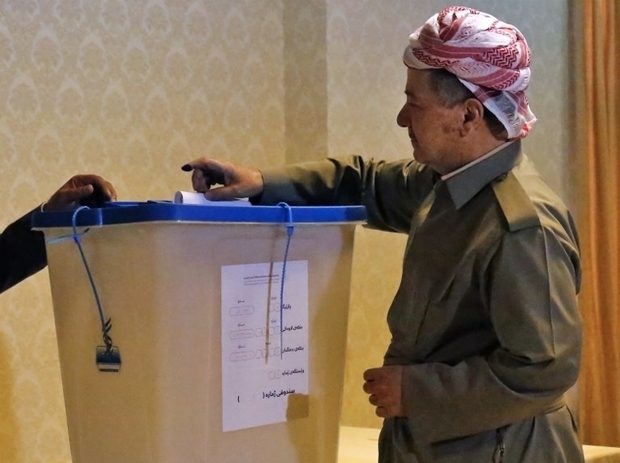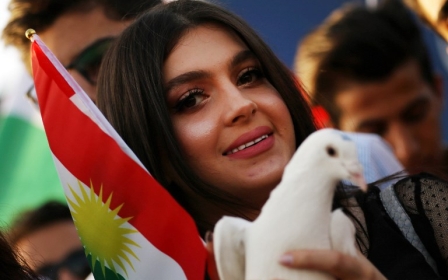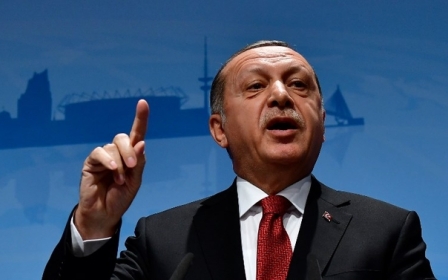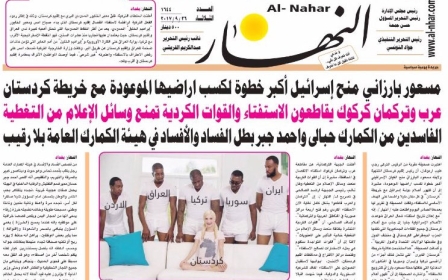Turkey threatens further sanctions, as Iraqi Kurds announce November poll
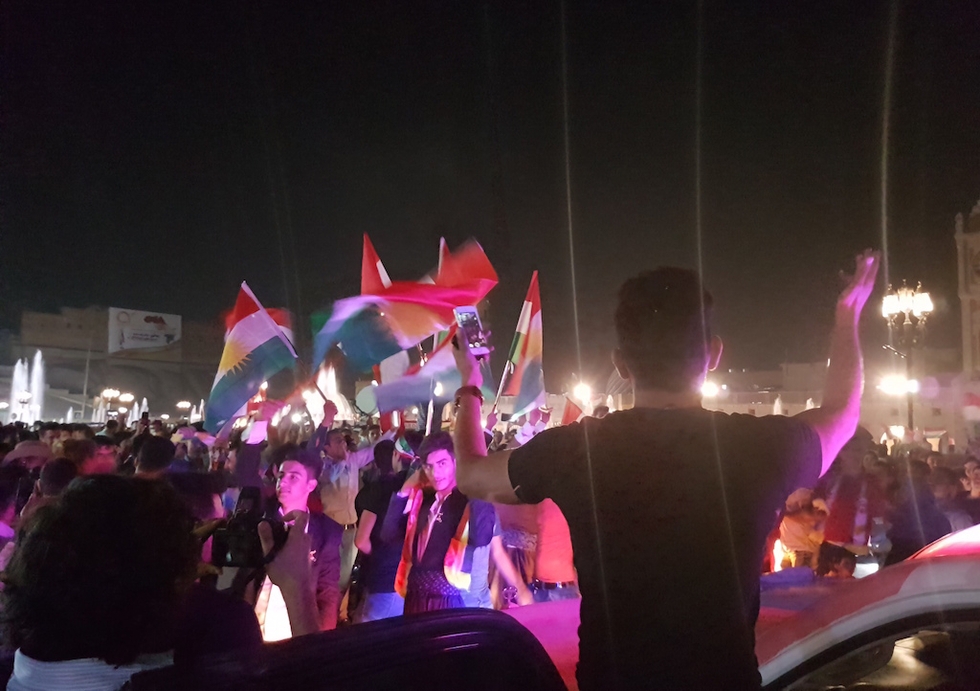
Turkey has upped its threats against the Iraqi Kurdistan region as the Kurdistan Regional Government (KRG) announced parliamentary and presidential elections for 1 November.
Turkish President Recep Tayyip Erdogan threatened to impose new sanctions on Iraq's Kurdish regions if they don't "come to their senses" following last Monday's referendum vote to secede from Iraq.
"We are managing with some embargoes in northern Iraq for now, but if they don't come to their senses this will continue increasingly," Erdogan said at a parliamentary meeting in Ankara on Tuesday.
"Any incident taking place in Syria and Iraq is not independent from us, they are linked directly to our domestic affairs."
He added that the referendum was "a new attempt to strike the heart of our region with a dagger".
We are managing with some embargoes in northern Iraq for now, but if they don't come to their senses, this will continue increasingly
- Turkish President Recep Tayyip Erdogan
Despite formerly good relations with the KRG, Turkey has been highly critical of the independence referendum over fears it could enflame
Iraqi Kurds gave a resounding 92.7 percent "yes" vote for independence in last Monday's non-binding referendum, which has also sent regional tensions soaring.
KRG President Massoud Barzani originally announced the referendum in June, which provoked repeated calls from the US, EU and others for a cancellation or delay.
On Tuesday it was announced that presidential and parliamentary elections for the Kurdistan region would be held on 1 November.
Clinging to power?
The referendum in Kurdistan was seen by analysts as a means for Barzani to cling on to power by shoring up nationalist sentiment ahead of the elections.
The heir of a dynasty which has led the Kurdish struggle for independence for over a century, Barzani has held the KRG presidency since its establishment in 2005, two years after the US-led invasion that toppled Saddam Hussein.
His tenure was extended beyond his second term in 2013, as fresh turmoil engulfed the region and Islamic State overran about a third of Iraq in 2014, threatening the Kurdish region.
Despite this, it was unclear whether Barzani would or could stand in the November poll as Kurdish law says a president cannot stay in office for more than two terms.
Gorran, the second-largest party in the Kurdish parliament, announced it would be putting forward Mohammad Tofiq Rahim, the party's foreign relations director, as its presidential candidate.
The party has been highly critical of the Kurdish independence referendum, which it denounced as "illegal" in June, and has accused Barzani of seeking to cling on to power and marginalise democratic opposition in the Kurdish region.
Neither Barzani's Kurdistan Democratic Party (KDP) nor the Patriotic Union of Kurdistan (PUK) had declared candidates by time of publication, despite the declaration period being due to expire on Tuesday.
Although Kurdistan has been largely autonomous since 2005, the prospect of full independence - and, in particular, the disuputed future of areas like Kirkuk and Sinjar - has provoked a fierce backlash in Baghdad.
There was controversy on Tuesday as Kurdish media reported that Kurdish MPs in Baghdad had been prevented from attending parliament.
According to some media reports, Arab MPs had demanded that Kurdish MPs swear an oath to support a unified Iraq in order to attend the parliamentary session, which the mostly independence-supporting Kurds refused.
Iraqi Prime Minister Haider al-Abadi ordered the suspension of international flights to and from Iraqi Kurdistan from Friday in retaliation for the Kurds voting for independence.
The Kurdish push for independence is meant to capitalise on their key contribution to the war on Islamic State after the group overwhelmed Iraqi forces in 2014.
The US administration, which had strengthened its alliance with Iraq's Kurds during the anti-IS campaign, is taking the side of Baghdad in the crisis in refusing to recognise the outcome of the referendum.
New MEE newsletter: Jerusalem Dispatch
Sign up to get the latest insights and analysis on Israel-Palestine, alongside Turkey Unpacked and other MEE newsletters
Middle East Eye delivers independent and unrivalled coverage and analysis of the Middle East, North Africa and beyond. To learn more about republishing this content and the associated fees, please fill out this form. More about MEE can be found here.


